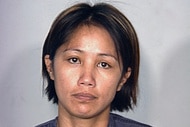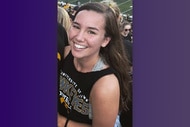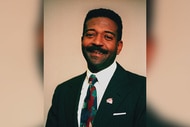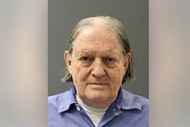Create a free profile to get unlimited access to exclusive videos, breaking news, sweepstakes, and more!
Advocate for Finding Missing Indigenous Women Sees Search Turn Personal After Niece Disappears
Lissa Yellow Bird spent years tracking down missing Indigenous women, until one day her own niece Carla Yellow Bird disappeared, sparking a very personal mission to bring her back home.

Lissa Yellow Bird has been on the front lines of the Missing, Murdered, and Indigenous Women movement (MMIW) for years, helping the families of missing loved ones find the closure they so desperately need, but she never imagined it would one day be her own.
Her mission became all too personal in August 2016 when her niece Carla Yellow Bird suddenly disappeared.
“Me and her father were so close. He always told me to keep an eye on her, help her out, don’t forget her,” Lissa told Dateline: Unforgettable.
She had promised to “make sure she was OK” so when Carla disappeared, Lissa knew she’d never rest until she found her.
“It wasn’t even a question of if I was going to find her,” she told Dateline correspondent Andrea Canning. “It was: I was going to find her.”
Who is Lissa Yellow Bird?
Lissa isn’t your average investigator. She’s a member of four Native American tribes and has worked as a prison guard, welder, social worker, and legal advocate.
But she’s also had a share of hardships. As a teenager, she said, her boyfriend trafficked her for sex and an addiction to drugs landed her behind bars for two years.
RELATED: Kidnapper Lures 10-Year-Old Away With Ruse To Buy Present For Her Mom
Not long after getting out of prison, a young neighbor of Lissa’s disappeared and she quickly launched a search party. They found the young girl alive.
But the search effort sparked a new calling for the mom of six. She decided to dedicate her life to finding MMIW, a segment of the population often overlooked.
According to Department of Justice findings cited by Dateline: Unforgettable, four out of five Native American women have experienced violence in their lifetime. A CDC report in 2021 also found that the homicide rates for Native American women were nearly three times their non-Hispanic white counterparts. Yet, many of the cases go unsolved.
“It’s been a sad history and so we’re trying to change it,” Secretary of the Interior Deb Haaland, the first Native American to serve in a presidential Cabinet, told Dateline: Unforgettable.
For years, Lissa has been searching for missing women and helped dozens of people. While some have come home alive, others weren’t so lucky. Through it all, families had Lissa as a tireless advocate.
“I just don't want families to feel like they’re all alone,” she told the show.
But her mission took a heartbreaking and personal turn in 2016 when her own niece Carla vanished.
What happened to Carla Yellow Bird?
Before she disappeared, Carla — who was living in Mandan, North Dakota — told her roommate she was going to Spirit Lake, a 400-square mile reservation about three hours away.
She soon stopped responding to calls or texts.
“I started kind of thinking something bad happened because it wasn’t like her to go off like this long without talking to somebody,” her sister Kerry Zephier said.
Zephier described her big sister as someone who was “really outgoing and just really happy.”
“Everyone just enjoyed being around her,” she said. “She was always there for us and watched over us. She was a good big sister.”
But, like her aunt, Carla, a young mom, also struggled with addiction. Her mom, Loretta Sitting Dog, had been “very” proud when Carla tried to beat her addiction and checked herself into treatment — but the victory was short-lived.
“When she got out it [was] still like she never went in there,” she said.
Now, without knowing where her daughter was, she’d “cry every night.”
For Lissa, Carla’s struggles hit close to home and she wondered where she’d be if she hadn’t found her purpose and decided to start a new chapter in her own life.
“She went down the same path I went down,” she said. “I could count the number of times that I could have ended up in that same predicament.”
Determined to find her missing niece, Lissa set to work, posting on social media to her vast network. She included a law enforcement tip that Carla had been seen in a silver car with three men, Suna Guy, Daylin St. Pierre, and Dakota Charboneau, before she disappeared.
Mandan Police Det. April Bowman had been trying to investigate the disappearance since Carla was reported missing. But she didn’t have jurisdiction to investigate a case involving tribal members on reservation land. That task would typically fall to tribal police and the Bureau of Indian Affairs, or BIA, but Bowman said she wasn’t getting calls back and didn’t get the information she needed to dive more deeply into the case.
The BIA would later tell Dateline: Unforgettable they had no record of Bowman’s calls.
“BIA OJS takes seriously each and every case they are working to solve because agents, who are often members of the same tribal communities they serve, know that cases aren’t just a case file — they represent a family missing a loved one that deserves closure,” they added in a statement.
As a private citizen, Lissa didn’t have the same restrictions Bowman faced and as a member of multiple tribes she had inside access to the Native American community.
“Lissa’s superpower was having that special connection and patience with her own people,” Canning said of what has made the case so memorable. “She knew from her many cases that those who might be reluctant to talk to police were often willing to talk to her.”
After posting on social media about the tip, Lissa soon got a call from Guy himself.
“Why is my name being put in stuff when I don’t even know what’s going on?” Guy asked her in the recorded phone call.
He insisted that although he had given Carla and her brother-in-law a ride to Spirit Lake, he dropped them off and hadn’t seen her again. He maintained he was “not a bad guy.”
Lissa wasn’t convinced. The calls between the two continued and although she initially played the role of a grieving and concerned aunt, she eventually increased the pressure.
“You need to get honest with me, because I’m done playing,” she said, later adding, “You think I haven’t dealt with your kind of people before? I have. I’ll come get her personally, myself, if I have to. But I want to know.”
By now, Lissa believed her niece was likely dead.
“You tell me where my niece’s body is at, and I’ll let God [expletive] reckon with you, OK? Because we already know how it’s gone down,” she told Guy. “And I’m telling you right now, you don’t know who to trust … Because your own friends are turning on you.”
“What do you want me to say to you?” Guy responded.
“The truth. How about, let’s try for the truth?” Lissa shot back, before demanding he “get [expletive] real” with her and abruptly ending their phone call.
The tough words sunk in and Guy eventually admitted he was there when Carla was killed, but insisted he never pulled the trigger.
“I didn’t know that was gonna happen,” he said.
Guy told Lissa that he, St. Pierre, and Charboneau had been with Carla when she died in a robbery gone wrong.
“The intention was to rob her,” Lissa said. “It didn’t go as planned, obviously. And when it happened the way it did, he claims that it was just as big of a shock to him.”
Guy eventually agreed to lead the FBI — who had now been called in to help — to the body in an isolated part of the reservation.
Lissa, who waited at a friend’s house nearby, identified the body through pictures.
“Definitely not my first time seeing anybody in that condition, but definitely my first time seeing somebody I loved. I guess I have never felt like I had such an open wound like in the middle of nowhere,” she said. “Seeing somebody you care about just discarded like that. They discarded her. They just left her.”
St. Pierre later pleaded guilty to felony murder and other charges and was sentenced to 27.5 years behind bars. Charboneau pleaded guilty to second-degree murder for aiding and abetting and other charges and received 50 years in prison. Guy pleaded guilty to second-degree murder and related charges as part of a plea deal in exchange for a 15-year sentence.
Lissa was finally able to find justice for her niece, but her mission to help others is far from done.
“I miss Carla. Everybody does,” she said. “I guess I just try to do the best I can to make sure this doesn’t happen to anybody else.”





























